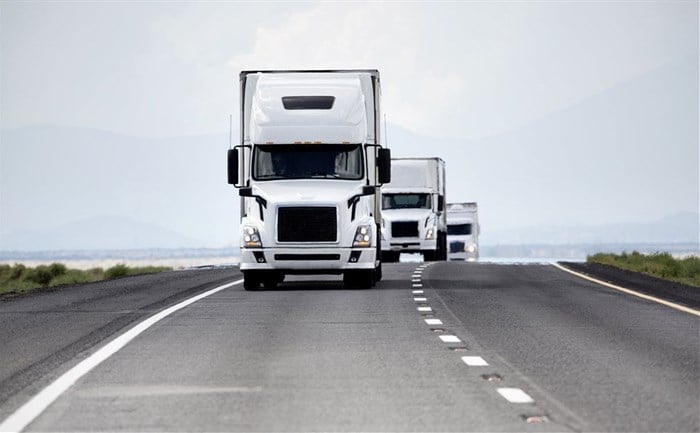






What does it take to make a success of a fleet business, whether it’s a third-party logistics supplier or an in-house capability?
"Money and lots of it," is the immediate answer of Nonkosi Dyantyi, CEO of Lebama Group Logistics – that rarity, a black female-owned company in a predominantly male sector. It’s not only a question of buying trucks but also the essential accessories such as hydraulics, trailers and so on, she says.
Joseph Ghanem, CEO at Hyperbuild, a major brick distributor which runs its own fleet of eight trucks, agrees that capital is the first requirement. "A good truck will set you back R3m, and you’ll need a further R3m as working capital," he estimates.
Working capital is so essential because the various members of the value chain offer different terms – some demand cash or immediate payment, whereas others have to carry their customers for 30 days or even longer. The logistics operator has to be able to balance all these requirements without running out of cash.
The challenge is finding the funding, says Dyantyi. "Some funders want you to demonstrate a certain turnover, but you haven’t yet secured your first contract! Others will accept your projections, but they want you to have a client signed up – even though you don’t yet have any trucks!" she says. "Subcontracting can offer start-ups a way to build traction and gain credibility. Nevertheless, as a subcontractor still has to be able to perform at the level the main contractor requires."
Ghanem cautions that anyone running a fleet must understand that they need to have a strong management structure in place to coordinate dispatch, ensure that proper maintenance takes place, deal with breakdowns, negotiate contracts and manage drivers.
Vehicles are critical to any logistics/ fleet business but arguably it’s the drivers who can make or break the operation. Dyantyi and Ghanem say that drivers have their own agendas, and trustworthy drivers are vital. Ensuring that drivers are properly screened and their documentation verified is a critical first step, both in building that trust and in meeting the requirements of your insurer.
The correct insurance is critical, says Ghanem – funding losses from one’s own pocket can cripple any business and is a cause of so many going under. Other important items to look for are ensuring that the vehicle and all its accessories are properly itemised and specified on the policy; many insurers also require comprehensive data on the kilometres travelled by each vehicle and how long it is on the road, so good record-keeping is essential.
When it comes to cargo, it’s equally important to provide excellent documentation as to what is being carried and its value.
As with all insurance, it’s vital that the correct amount is insured, and that all risk disclosures are made.
“Your insurance company or broker can be a huge help in getting all of this right upfront so you can claim if necessary," Mellow says.
Dyantyi has suggestions for how insurers can up their game. She has found that the claims procedure can be too cumbersome, and she really wishes that fleet insurance came with the same links to trusted service providers that a typical household policy would have. "As a female fleet owner, it would be a dream come true if the insurer had a network of registered mechanics that one could use when a truck breaks down in a remote place," she says.
One huge plus that insurers offer is roadside assistance, she adds. Swift roadside assistance will get that valuable truck going in the shortest possible time, and can be the difference between a salvaged load or one that is completely lost.
Logistics is a tough business, and it needs a proper amount of capital. But with that in place, along with the right systems and a do-or-die attitude, one can build a sustainable business. After all, trade is what makes the world go round, and that means moving goods from place to place is always going to be needed.